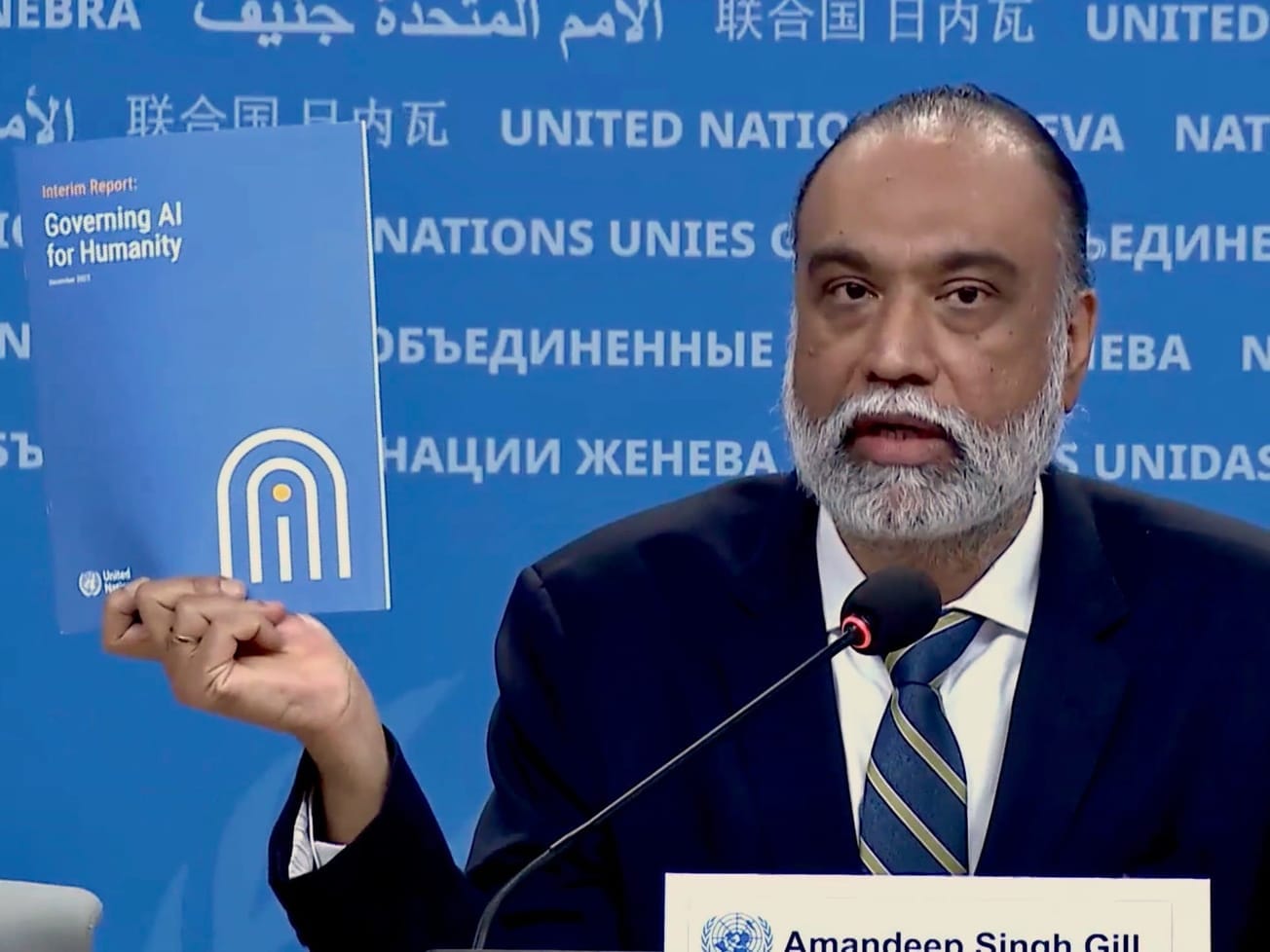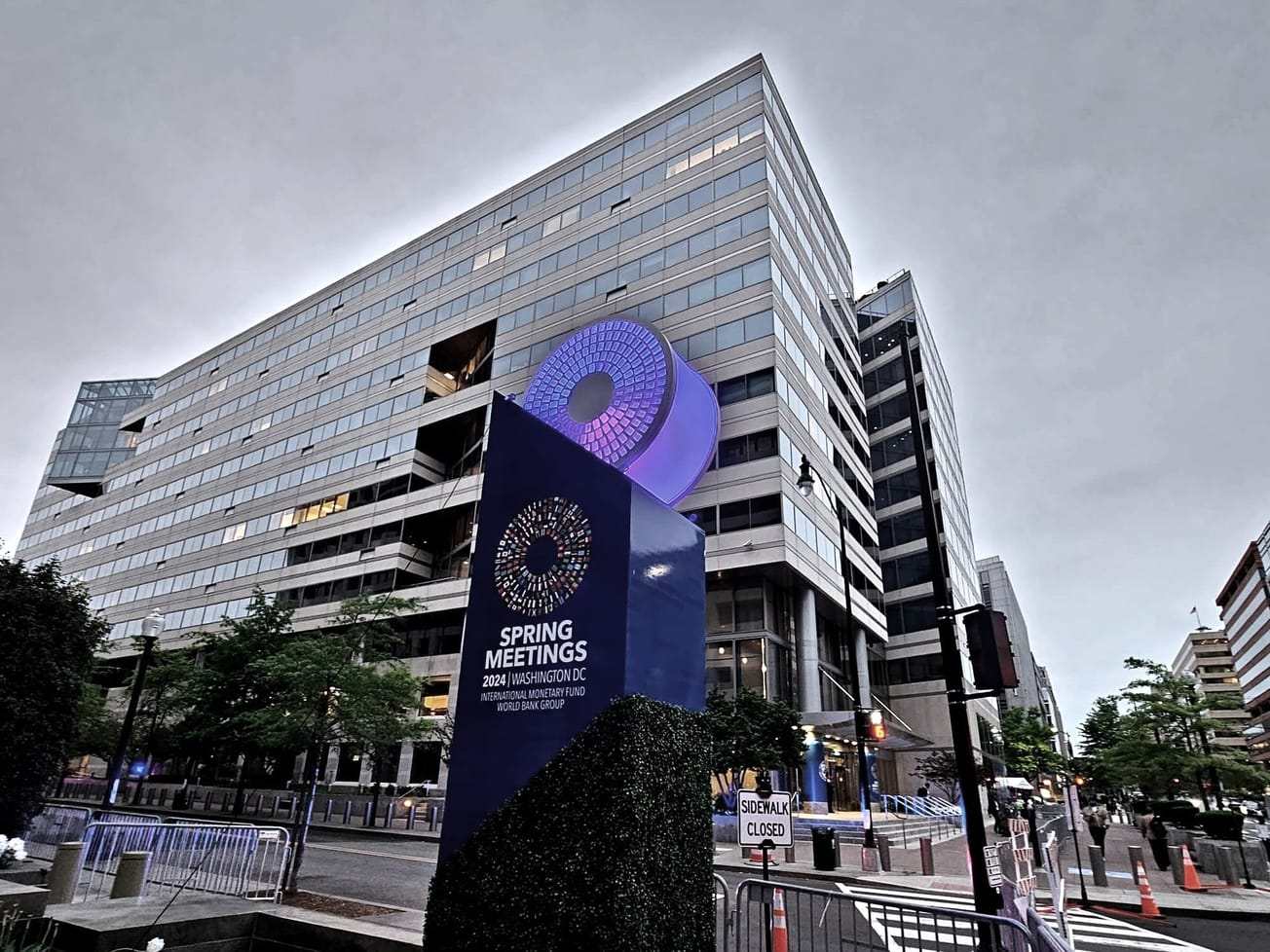A draft resolution proposed by the United States and co-sponsored by 56 other nations asks the U.N. General Assembly to promote a shared approach to "safe, secure and trustworthy" artificial intelligence.
"AI has enormous potential to shape our economies, societies, and the world for the better," U.S. Ambassador Linda Thomas-Greenfield told reporters at U.N. headquarters on Thursday. "We must ensure these benefits extend across the globe to countries at all levels of development."
She spoke a day after the European Union approved the world's first binding set of regulations for artificial intelligence, making it a trail blazer for other nations.
Flanked by representatives of 40 co-sponsors, Thomas-Greenfield said the draft resolution calls on nations to use AI to address the world’s greatest challenges, including poverty, global health, food security, climate, energy, and education.
"We are resolved to bridge the artificial intelligence and other digital divides between and within countries through capacity building, increasing digital literacy, and other actions," the U.S. ambassador to the United Nations said.
The draft resolution also establishes a shared vision, she said, that "AI systems should be human-centric, reliable, explainable, ethical, inclusive, privacy preserving, and responsible, with a sustainable development orientation, and in full respect, promotion and protection of human rights and international law."
The E.U.'s AI Act, adopted by its parliament on Wednesday, categorizes risks based on their harm to society and bans those that pose a "clear risk to fundamental rights" such as biometric data protections and expression of emotions in schools and workplaces.
Some general purpose AI systems will have to comply with E.U. copyright law and be transparent about the material used to train models. The AI Act is expected to become law by the end of May, after member nations and the European Council sign off.
"Europe is now a global standard-setter in trustworthy AI," said Thierry Breton, E.U.'s internal market chief. "We are regulating as little as possible and as much as needed, with proportionate measures for AI models."
Diplomatic talks among major powers within the United Nations are quickly reaching agreement on the possible governance of fast-developing artificial intelligence, according to a top official.
Amandeep Singh Gill, the U.N. secretary-general's envoy on technology, says the discussions emphasize "inclusion," "public interest" and "human rights," and are different from national and industry regulations.

A U.N.-led process leading up to a summit
Gill, who is based at the U.N. headquarters in New York, was in Geneva for the second in-person meeting of the U.N.'s 39-member AI Advisory Body, which is co-chaired by Carme Artigas, a Spanish secretary of state for digitalization and AI, and James Manyika, a Google senior vice president.
It met to discuss its interim report launched in December which includes a proposal to strengthen international governance of AI. The panel says it wants to ensure that AI offers all nations an equitable voice and closely aligns with international norms.
"We have members from the U.S., from China, from the European Union, from India, Japan, who are steeped in these issues, and they were able to, in a very short span of time, two and a half months, able to come to a consensus on this ambitious, well-received analysis," Gill said on Tuesday.
"So that makes me optimistic," he told a press briefing. "The meeting in Geneva allows the Advisory Body to deepen its consideration, its analysis of AI's risks and challenges, the opportunities and what's needed to seize those opportunities for sustainable development, for instance."
Gill also pointed to "extensive discussions" in other policy arenas including the U.N. General Assembly, where the U.S.-proposed draft resolution would recognize a need to discuss governance options and seek to ensure AI is safe and accessible.
The draft has "enlarged the ground for consensus," he said. "There is something that everryone has agreed upon: that these are powerful technologies, we can't just have business as usual."
Much of the work is anticipated to culminate with U.N. chief António Guterres' Summit of the Future planned for September around the General Assembly's annual gathering in New York.
The summit is envisioned as a platform for addressing global governance gaps in AI. It aims to foster a global consensus on managing emerging technologies in a way that promotes peace, security, and sustainable development.
Asked about the potential for brain data to be made public through the use of AI, Gill said "that's a line that we should not cross at all" as the technology develops.
"Our notions of privacy should extend to mental privacy. And we have now concerns with these large language models, the way they process brain signals," he said. "So your private mental space may not be private for long. That concern is very much shared strongly."
This story has been updated with additional details.










